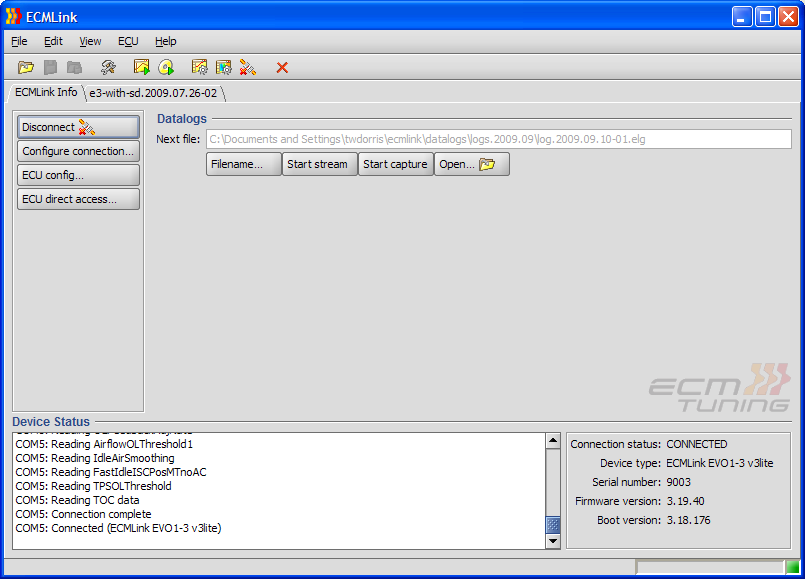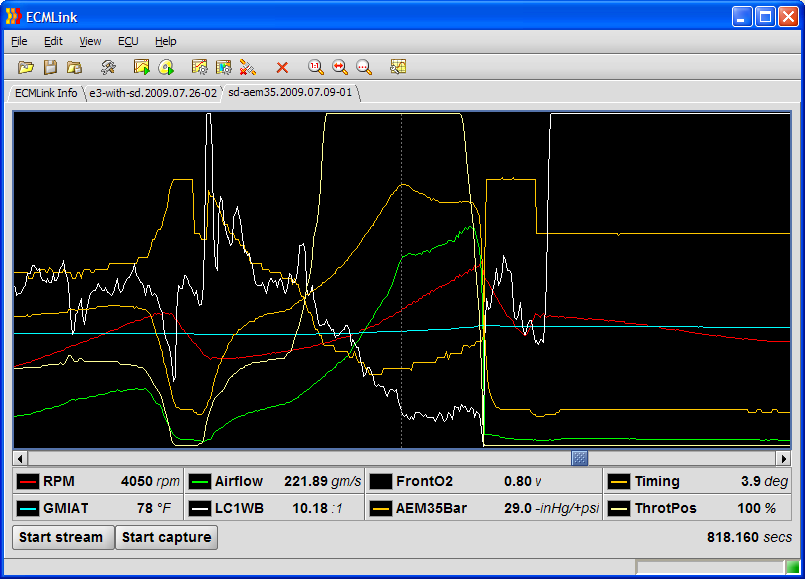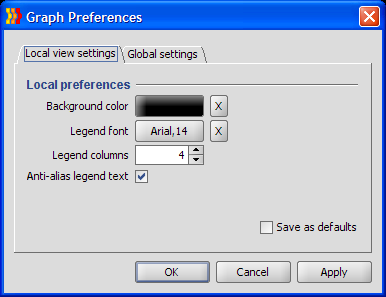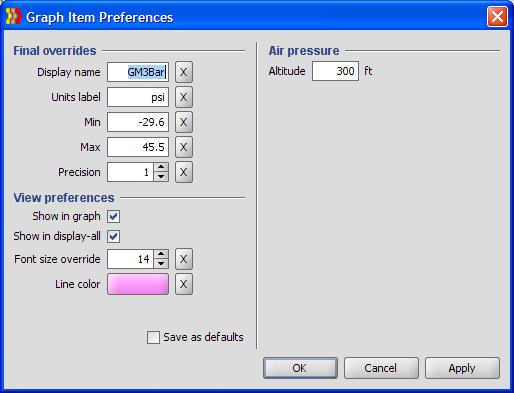This is an old revision of the document!
Table of Contents
ECMLink (V3Lite) Screenshots
V3Lite is a more basic (but less expensive) version of our standard package. However, it's still fully capable of doing all the basic engine management you need to get started.
You can get more details on what's included in each version off our production comparison page.
V3Lite includes our enhanced logging system. You can expect to see 1000+ synchronized samples per second from the factory ECU! We've been doing this stuff on Mitsubishi ECUs for over 10 years. We know how to make it work and work right. It also includes our high quality, fully opto-isolated USB datalogging cable.
You also get:
- Injector and deadtime compensation
- Fuel and timing adjustments using our extended tables
- Rev limit control (launch, NLTS, and full engine rev limit)
- Dash gauge control (on platforms where the ECU has control over a dash gauge)
- TPS dial-in, idle switch simulation
- Narrowband O2 simulation (so you can log A/F ratio from a wideband *and* run normal closed loop operation off the same signal)
- Anti-lag during launch and between shifts
- Knock sensor adjustments
- Solenoid tests, fan control, fuel pump control, and a variety of other miscellaneous functions
- DTCs - check and enable/disable various trouble codes
- Input manipulation (log aftermarket sensors on ECU inputs while disabling the factory use of those inputs)
- O2 feedback adjustment (so you can account for variations in feedback control caused by wideband sensors)
- Throttle tip-in adjustments
- Airflow smoothing
- Airflow compensation (to run other Mitsubishi MAF sensors)
- Adjustable long term fuel trim control points
- Open loop thresholds
And last, but not least, we've decided to add a version of our Speed Density solution!! This allows for adjustments up to 8000 RPM and about 26psi of boost.
You can still run beyond 8000 RPM and you can run more than 26psi of boost. You simply don't have adjustment points beyond those limits. You can get details on the theory behind speed density on this page and details on how to configure your car for SD off this page.
Screen shots below. Of course, you can click on the image thumbnail to get a better (larger) view. This is by no means a user manual. The ECMLink application includes a number of help pages built in. This page is just an overview to get a quick general idea of what the application is like.
NOTE: The screen shots below were made back when V3Lite was first release. At that time, we had far fewer tabs and options available in the application than we do now. Please refer to our production comparison page for a list of what you can do with V3Lite. Use the screen shots below as a general illustration only. They do not present everything possible with V3Lite.
Basic operation
ECU configuration
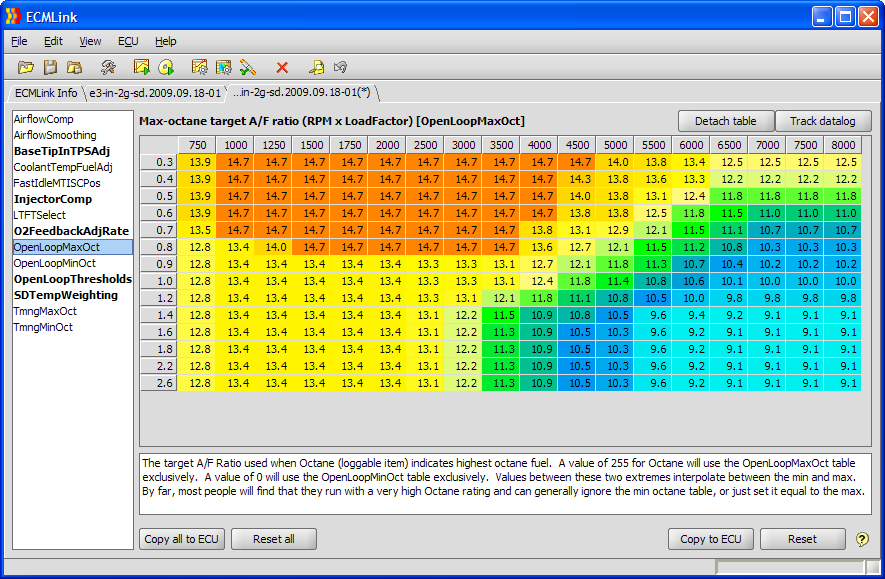 | DirectAccess is cool…very cool. It provides direct, low-level access to a variety of factory tables. This shot shows the ECU's target A/F ratio while running open loop. |
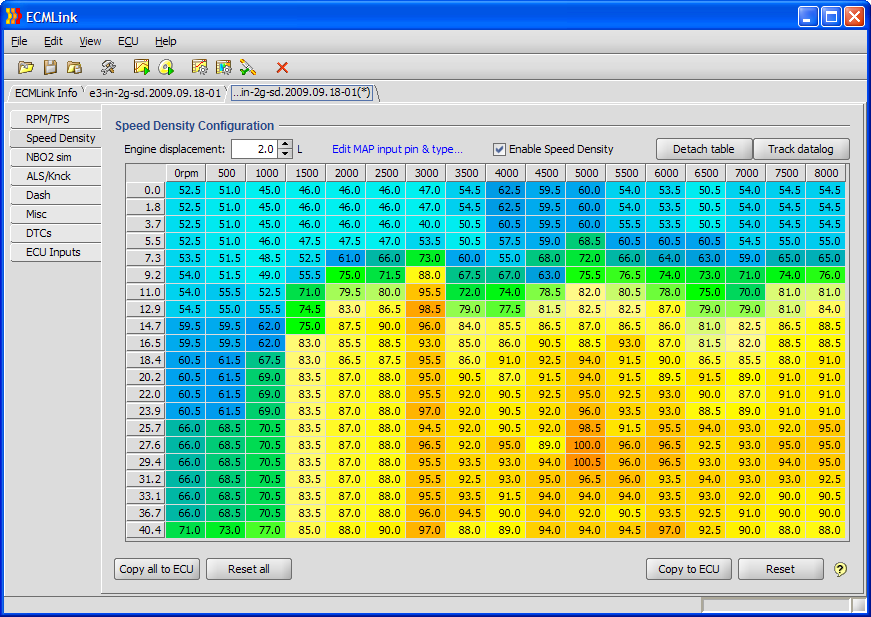 | Speed density lets you remove the mass air sensor entirely and run off a pressure and air temperature sensor exclusively. Setup is pretty straight forward. Note that the pressure and RPM limits of this table are only the limits of the VE adjustment curve. You can certainly run beyond 8000 RPM and beyond 40.4 psia (~26psi). You just won't have adjustment points for the VE there. |
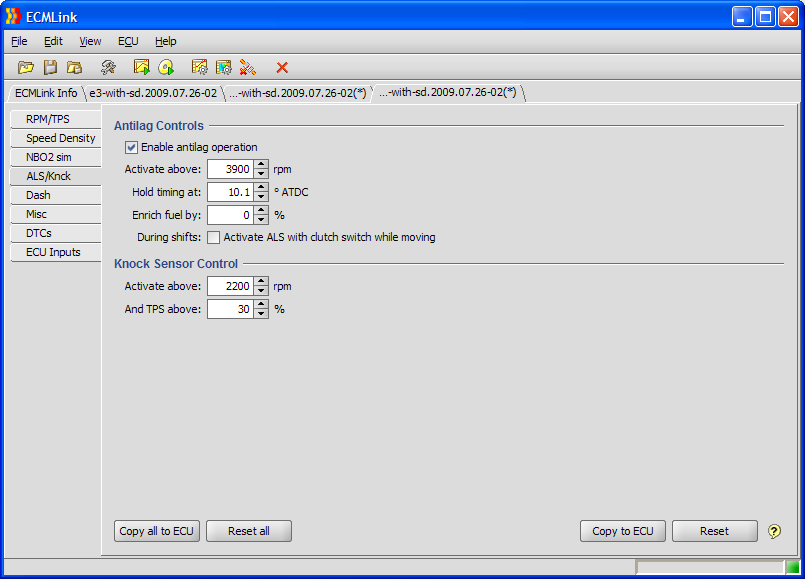 | Basic antilag and knock control tab. |
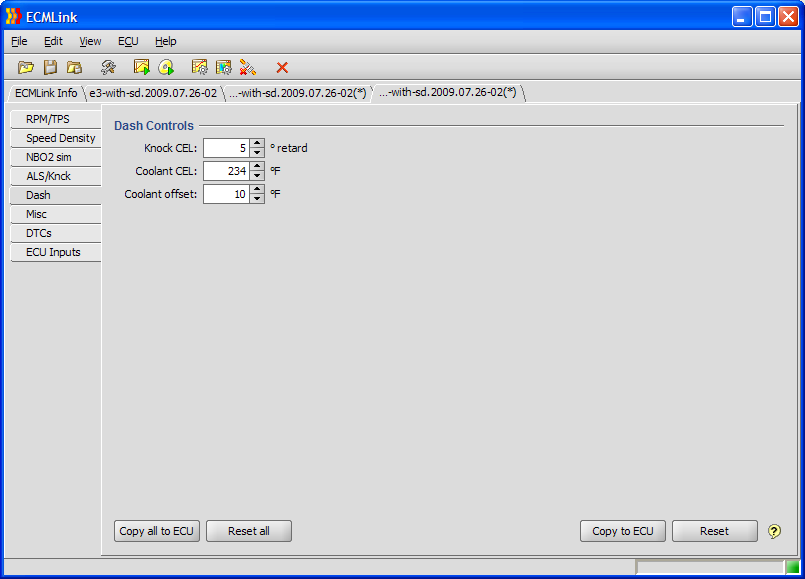 | Basic dash controls. |
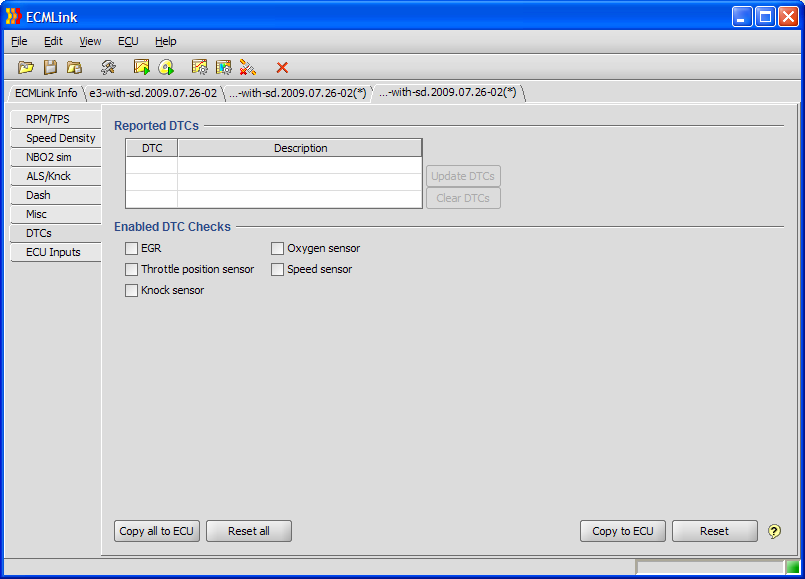 | Basic control over diagnostic trouble codes (DTCs) |
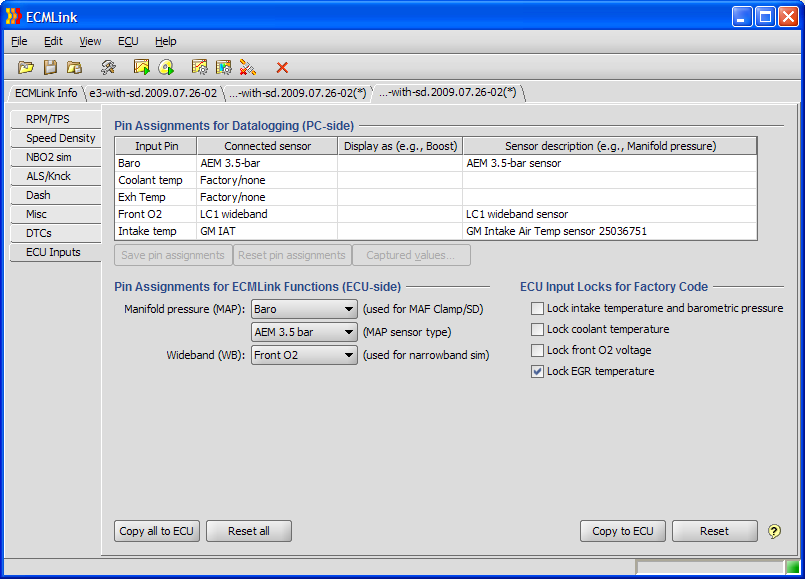 | In the ECU inputs tab, you tell the application what's connected where and then you tell the ECU where it can find certain sensors and which inputs it should hide or lock from factory code because the sensors connected to those inputs may be missing or replaced with something entirely different. |
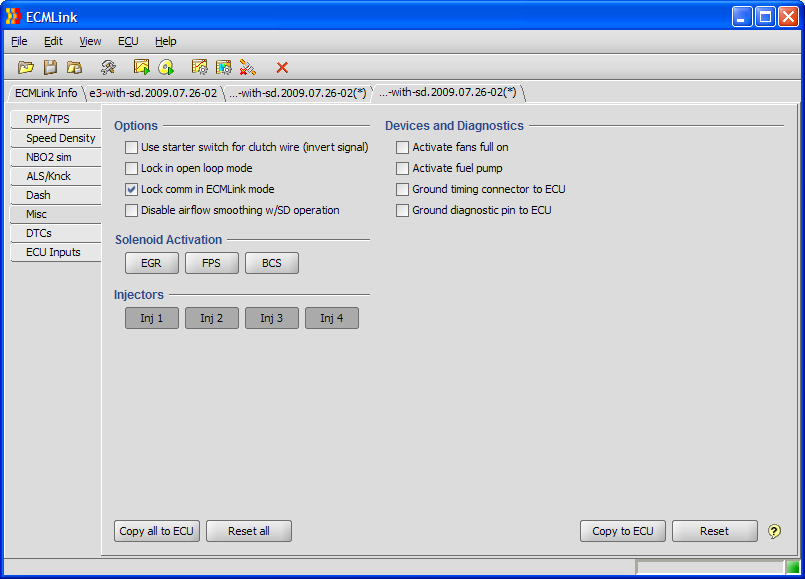 | A collection of various “miscellaneous” things that don't really fit anywhere else. For example, activating the fuel pump or simulating the grounding of the timing connector. |
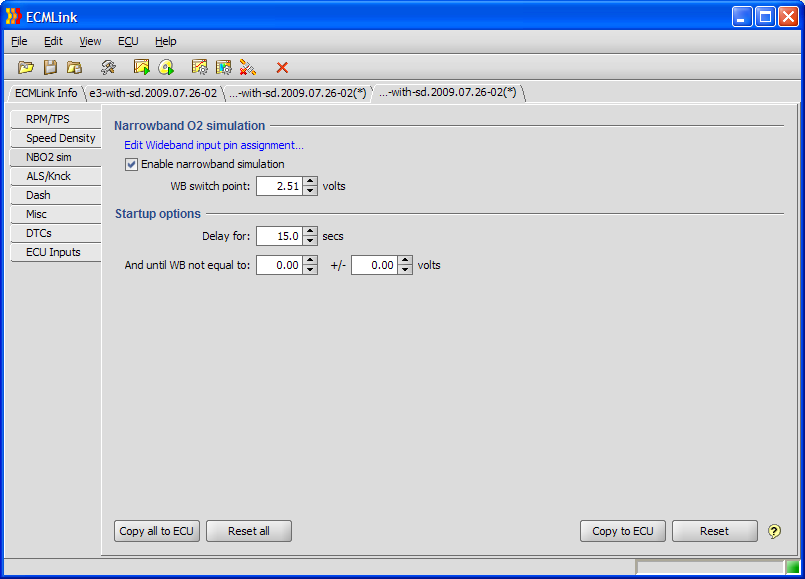 | Enable narrowband simulation causes the ECU to produce and use a narrowband oxygen sensor signal based on a wideband oxygen sensor unit's signal. The simulated signal is a square wave indicating either richer or leaner than the Wideband switch point. |
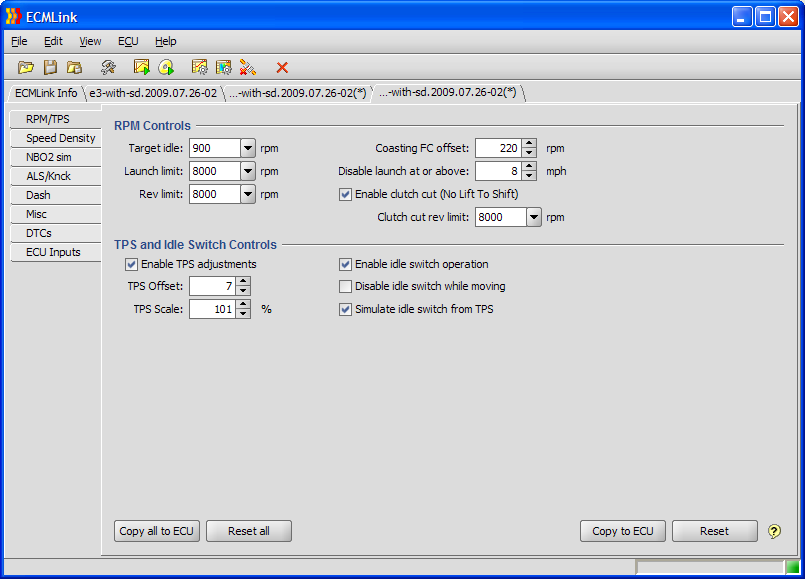 | Basic RPM limits and TPS adjustments. |

